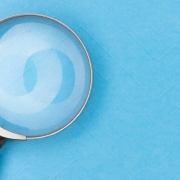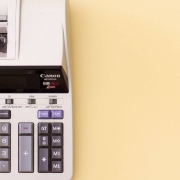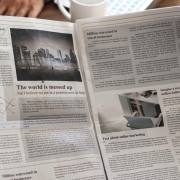What is IoT?
Internet of Things “refers to the billions of physical devices around the world that are now connected to the internet, all collecting and sharing data”. Connecting different objects adds an intelligence to the devices and communicate real-time data independent of human interference.
IoT devices that people are used to seeing around their houses/for personal use includes Google Home, Amazon Echo or a Nest Thermostat.
However, as mentioned in our 2019 research, one problem with questions about IoT in business is that the “scale of adoption is difficult to measure. For example, a company using IoT could mean that they have developed a sophisticated proprietary product, or it could mean that they have an Amazon Echo or Google Home in the office.”
Why would businesses adopt IoT?
The IoT market does not just include personal gadgets. There is hardware, software, systems integration, telecoms services and data services which can be powered through IoT. For businesses, the adoption of IoT could allow better customer insights, smart business models and increased productivity.
Who is interested in IoT?
According to Forbes, the industries which IoT is impacting include communications, energy, financial services, healthcare, manufacturing, retail and transportation.
Should you adopt AI?
Security is a large concern when it comes to IoT. The technology does not have a strong history of keeping personal data secure. In addition, companies could face the additional risk of an attack on critical infrastructure. A business must secure data. If not, GDPR could induce a major fine and the credibility of the company is on the line. IoT devices are a target for hackers who can discover the software codes of the systems connected to the Internet.
Privacy needs to also be considered. A lot of data could be collected about a user. ZD Net use the example of whether employees would be happy to discuss a merger in a room filled with smart speakers and cameras.
The government published guidelines around the security of consumer IoT devices. This includes the requirements of passwords, a public point of contact for potential security vulnerabilities to be reported, and for explicit security updates.
With the increasing amount of data, and Big Data, which will be stored in IoT devices, a business would have to introduce a framework on how to manage this and keep it secure.
IoT Companies
IoT applications can have their data processing completed through the cloud. Cloud services which can have this service include Microsoft’s Azure IoT suite, Google Cloud and AWS. Generally, there is still little deployment or development of this technology. However, there is certainly interest.
Numbers for IoT this year compared to last year
- In 2020, of the respondents who mentioned that they were going to deploy emerging technologies in the future, 5% of respondents reported that their organisation was going to adopt IoT.
- In 2019, 15% of respondents were actively using IoT.
- In 2018, 20% of respondents were actively using IoT, 8% planning to deploy it in the next 12 months and 34% of respondents had long term interest.
IoT Glossary
IoT = “refers to the billions of physical devices around the world that are now connected to the internet, all collecting and sharing data”
Smart device = “an electronic gadget that is able to connect, share and interact with its user and other smart devices”
Secure = will remain safe and not threatened
Personal data = “information which relates to an identified or identifiable individual
GDPR (General Data Protection Regulation) = a legal document which sets out a framework for processing personal data of citizens who live in the European Union.
Big Data = “large, diverse sets of information that grow at ever-increasing rates. It encompasses the volume of information, the velocity of speed at which it is created and collected, and the variety or scope of the data points being covered”











Leave a Reply
Want to join the discussion?Feel free to contribute!